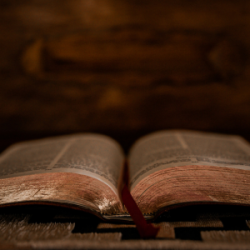
Again, the instruction for how to help a fellow Israelite did not end with prohibiting interest or profit. It went even further to require eventual and complete debt cancellation. If the debt could not be paid off interest-free in seven years, not only was there to be no profit to the lender, they would now take a loss:
“At the end of every seven years you must cancel debts. This is how it is to be done: Every creditor shall cancel any loan they have made to a fellow Israelite. They shall not require payment from anyone among their own people, because the LORD’s time for canceling debts has been proclaimed. You may require payment from a foreigner, but you must cancel any debt your fellow Israelite owes you.” (Deuteronomy 15:1-3)
Welcome Readers! Please subscribe to Social Jesus Here.
This is Part 3 of A Prayer For Liberation
(Read this series from its beginning here.)
A version of the Lord’s Prayer also exists in Matthew’s gospel. Most scholars believe this version was written earlier than Luke. It reads:
“And forgive us our debts, as we also have forgiven our debtors.” (Matthew 6:12)
It is fascinating to me that the early forms of the Lord’s prayer were economic. It was less about forgiving general sins and trespasses and more about restoring the original Torah ethic of debt forgiveness. John Dominic Crossan writes on this point:
“Matthew works from ‘debts’ through ‘trespasses’ to ‘sins,’ but Luke gets there right away . . . ‘Debts’ was originally intended quite literally. Jesus meant that eternal peasant dyad of enough bread for today and no debt for tomorrow. Were it originally and clearly metaphorical—‘debts’ meaning ‘sins’—everyone would have understood that intention and the progression in terminology from “debts” to “trespasses” to “sins” would not have been necessary. Another is that, from Mark through Matthew and into Luke, “debts” change to “trespasses” and then to “sins.” In its present format, therefore, it seems advisable to read Matthew’s text as including both debt and sin—not debt alone, not sin alone, and certainly not sin instead of debt, but both together. Indeed, the ultimate challenge may be to ponder their interaction. And, at least for the biblical tradition, when debt creates too much inequality, it has become sinful.” (John Dominic Crossan, The Greatest Prayer: Rediscovering the Revolutionary Message of the Lord’s Prayer, p. 159-160.)
This was a prayer of liberation and economic justice for people living in poverty.
Lastly, our reading closes with a story about shameless persistence in prayer. I will be the first to admit that I don’t understand how prayer works. But it helps me in reading this passage to keep everything in its context. Luke’s audience was an oppressed people being encouraged to persevere in their prayers and actions for liberation. They were praying for the end of all injustice, oppression, and violence. They were praying for liberation from financial debt. They were praying that they would have enough food on their tables. They were praying and working for justice in this world, their world. And whether we would define ourselves as praying people or not, persisting in the work of justice even against what seem to be insurmountable odds, is an encouragement still needed today. Maybe the temptation we are to pray not to be led into is the temptation to give up hope or give in to despair. And if this is how we choose to read this prayer, this a prayer I can say “Amen” to.
Are you receiving all of RHM’s free resources each week?
Begin each day being inspired toward love, compassion, justice and action. Free.
Sign up at HERE.














